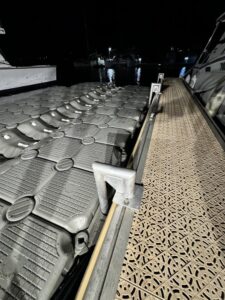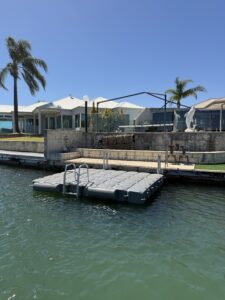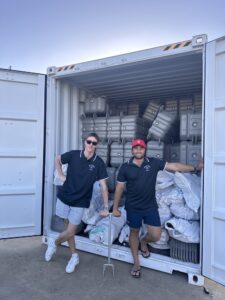How Do Floating Docks Handle Changing Water Levels And Weather Conditions?
Floating docks are built to adapt to water level changes and weather conditions. They use a buoyant structure that allows them to float on the surface, rising and falling with the water. This design keeps the dock at a consistent height relative to the shore or boats, ensuring safe and easy access. In areas with frequent tides or seasonal water changes, floating docks provide flexibility without the need for constant adjustment. To stay secure, they are anchored using flexible systems like cables, chains, or pilings that allow vertical movement while holding the dock in place. During storms or rough weather, their low-profile design and flexible joints help absorb wave energy and reduce impact. Made from durable materials, they are built to resist damage from wind, waves, and floating debris. These features make floating docks a reliable choice for changing environments, offering both stability and convenience for waterfront access.
How do floating docks adjust to rising or falling water levels?

Floating docks are designed to move with the water using buoyancy and vertical movement. Their structure allows them to rise and fall with the water level, which is especially useful in areas with frequent tides or seasonal water fluctuations. This floating capability ensures the dock stays at a constant height relative to the surface, maintaining safe and steady access to boats, ramps, or the shoreline at all times. The dock is anchored with flexible systems such as chains, pilings, or cables, which keep it in place while allowing for smooth vertical movement. This means the dock remains stable without being fixed to one height like traditional fixed docks. These docks are especially helpful in rivers, lakes, and tidal zones where water levels shift regularly. They offer a simple and effective solution to ensure usability in changing conditions without manual adjustment or additional construction. Floating docks handle elevation changes naturally, which saves time and reduces maintenance.
What design features help floating docks withstand harsh weather?
Floating docks are made with stability and storm resistance in mind. They are often built using durable materials such as polyethylene or treated wood, which resist water damage, rot, and corrosion. These materials extend the dock’s lifespan, even in tough conditions. To absorb wave movement, the dock includes flexible joints or hinges that allow sections to shift slightly with the water. This flexibility helps prevent stress fractures and reduces wear. The entire structure is anchored securely using piles, chains, or cable systems that stop the dock from drifting during high winds or rough waves. Another key feature is their low-profile design, which lowers the surface area exposed to wind and wave force. This makes the dock more stable and reduces the chances of tipping or damage. Together, these features provide a reliable setup that holds firm in various weather conditions while remaining safe for everyday use.
Are floating docks suitable for all types of water environments?

Floating docks are effective, but their suitability depends on water and weather conditions. They perform best in calm or moderate water bodies such as lakes, rivers, or sheltered coastal areas. These settings allow the dock to float freely and maintain access without disruption. In areas with strong currents or heavy wave action, floating docks may not be ideal, as they can be more easily moved or damaged by forceful water. These environments might require additional reinforcement or a different type of dock. Floating docks also require regular maintenance to stay safe and clean. Owners should check for wear, algae, or debris buildup that can affect safety and performance. Despite these limits, custom configurations are available to suit specific needs. For example, longer or heavier docks can improve stability, or different anchoring systems can be used depending on the site. Choosing the right setup ensures the dock works well in its intended location.
WS Docks

WS Docks is a trusted choice for floating docks in Mandurah, WA. They provide high-quality dock systems built for Australian conditions. Whether you need a floating dock for a riverfront, lake, or marina, WS Docks offers solutions that combine durability and easy installation. They use weather-resistant materials and tested designs that handle water level changes and wind effectively. The team at WS Docks is known for reliable service and a strong understanding of local needs. With years of experience in the field, they help clients choose the best dock layout for their site. For property owners in the Perth region, WS Docks delivers stable, long-lasting floating docks that support safe and flexible waterfront access.
